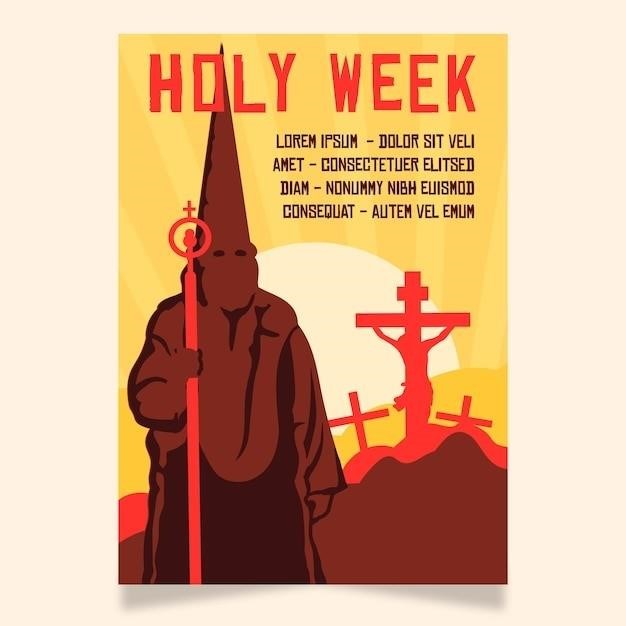Mere Christianity PDF⁚ Accessibility and Availability
Finding digital copies of C.S. Lewis’s Mere Christianity is straightforward. Many websites offer free and legal downloads in PDF format, but verify source legitimacy.
Finding Free and Legal Downloads
Securing a free and legal PDF of Mere Christianity requires careful sourcing. While many websites offer downloads, prioritize reputable online libraries, academic archives, or project Gutenberg-like initiatives. Be wary of unofficial sites; illegally distributed copies infringe copyright. Check for terms of use before downloading. Some sites may offer the text in various formats; select PDF for convenient reading and printing. Remember to respect intellectual property rights; support authors by purchasing legitimate copies when possible. A legal PDF ensures you’re enjoying the work ethically and supporting its continued availability.
Locating PDFs from Reputable Sources
To find trustworthy Mere Christianity PDFs, explore established online bookstores with digital offerings. Sites like Amazon or Barnes & Noble often sell ebooks that can be downloaded as PDFs. University libraries with extensive digital collections might offer access to the text, either through direct download or as part of a subscription service. Check the websites of Christian organizations or theological institutions; they may provide free PDFs as part of their online resources. Public domain projects, if the copyright has expired, may also host the book. Always verify the source’s legitimacy to avoid accessing pirated or altered versions of Lewis’s work.

The Content of Mere Christianity
Mere Christianity presents a clear and accessible explanation of core Christian beliefs, combining apologetics, morality, and spiritual growth.
Summary of the Three Books
Mere Christianity compiles three distinct books⁚ “The Case for Christianity” lays the groundwork, arguing for the existence of God and the rationality of Christian belief. It addresses common objections and presents a compelling case for faith. “Christian Behavior” delves into the practical application of Christian principles in daily life, exploring topics such as morality, humility, and forgiveness. It emphasizes living a life that reflects Christian values. Finally, “Beyond Personality” delves into the nature of God, the significance of Christ’s sacrifice, and the possibility of life after death. This section offers a deeper theological reflection, urging readers to embrace a life beyond purely earthly concerns. The integration of these three perspectives creates a comprehensive exploration of Christian faith and practice.
Key Themes and Arguments
Central to Mere Christianity is Lewis’s compelling argument for the existence of a moral law, suggesting an objective standard of right and wrong inherent in humanity. He posits that this moral law points toward a transcendent source, a Creator God. The concept of God as a loving but just being, capable of both mercy and judgment, is another recurring theme. Lewis also addresses the problem of pain and suffering, offering a theological framework for understanding human experience. He presents Christianity not as a mere set of rules but as a relationship with God, emphasizing faith, repentance, and the transformative power of Christ’s sacrifice. The work also tackles the nature of good and evil, highlighting the importance of humility and self-denial. Throughout, Lewis emphasizes the universality of Christian principles, transcending denominational differences.
C.S. Lewis’s Background and Influence
C.S. Lewis, a renowned Oxford scholar and author, profoundly impacted Christian thought with his accessible and engaging apologetics. His life and works continue to inspire believers and non-believers alike.
Lewis’s Life and Academic Career
Clive Staples Lewis (1898-1963) was a prolific writer and academic, deeply influencing 20th-century literature and Christian thought. Born in Belfast, Ireland, he experienced a transformative conversion to Christianity in his adulthood. Educated at University College, Oxford, Lewis’s academic career flourished, marked by his expertise in medieval and Renaissance literature. He held positions at both Oxford and Cambridge Universities, showcasing his profound knowledge and intellect. His literary contributions extended beyond academic circles, encompassing fantasy novels like The Chronicles of Narnia, which captivated readers of all ages, and insightful works of Christian apologetics, firmly establishing his place as a leading intellectual figure of his time. His impact on Christian thought remains significant, shaping theological discussions and inspiring countless individuals. The depth of his scholarship and the wide appeal of his writing secured his legacy as one of the most influential Christian authors of the modern era. His life’s journey and academic pursuits created a foundation for the intellectual and spiritual richness found in his works.
Impact of Mere Christianity on Christian Thought
C.S. Lewis’s Mere Christianity profoundly impacted Christian thought by effectively communicating core Christian doctrines to a broad audience. Its accessible style and clear articulation of fundamental beliefs resonated deeply, particularly among those unfamiliar with traditional theological discourse. The book’s defense of Christianity against common objections proved persuasive, influencing countless conversions and strengthening the faith of many believers. Lewis’s compelling arguments regarding the existence of God, the nature of morality, and the significance of Christ’s sacrifice continue to be studied and debated within theological circles. Mere Christianity‘s enduring popularity testifies to its lasting impact, shaping contemporary Christian apologetics and inspiring countless subsequent works that engage with similar themes and approaches. Its influence extends beyond purely theological discussions, affecting societal views on morality and ethics, fostering meaningful conversations about faith and reason in the modern world. The book’s accessibility and enduring relevance have ensured its place as a cornerstone of Christian literature.
Different Editions and Formats
Mere Christianity exists in numerous editions, varying in text and presentation. It’s available in paperback, hardcover, ebook, and audiobook formats, and translated into multiple languages.
Variations in Text and Presentation
The availability of Mere Christianity in PDF format presents readers with several variations in text and presentation. Some PDFs might be direct scans of older editions, preserving the original layout and typography but potentially with lower image quality. Others might be digitally typeset versions, offering a more consistent and cleaner reading experience with features like adjustable font sizes and improved searchability. These variations also extend to the inclusion of introductory materials or supplementary essays. Furthermore, some versions might include annotations or study guides incorporated directly into the text, enhancing the reading experience for those interested in deeper engagement with Lewis’s arguments. The existence of multiple versions underlines the enduring popularity and continued relevance of Lewis’s work.
Availability in Multiple Languages
The widespread influence of C.S. Lewis’s Mere Christianity is reflected in its extensive translation and availability in numerous languages. While English remains the original and most widely circulated version, readily accessible PDF copies exist in various languages, catering to a global readership. The translation process itself introduces complexities; nuances of language and cultural contexts can significantly impact the interpretation of Lewis’s ideas. Finding translated PDFs requires careful consideration of the source’s reliability and the quality of the translation. Readers should prioritize translations from reputable publishers to ensure accuracy and faithfulness to the original text. This multilingual accessibility underscores the enduring and universal appeal of Lewis’s message.

Critical Reception and Legacy
Mere Christianity has garnered significant scholarly attention and widespread acclaim, securing its place as a cornerstone of Christian apologetics and impacting Christian thought profoundly.
Scholarly Analyses and Reviews
Scholarly engagement with C.S. Lewis’s Mere Christianity is extensive. Numerous academic papers and books dissect Lewis’s arguments, examining his theological positions, literary style, and rhetorical strategies. These analyses often explore the work’s historical context, tracing its influence on subsequent Christian thought and apologetics. Reviews, spanning decades, highlight both the book’s strengths—its clarity, accessibility, and persuasive power—and areas for critical discussion, such as its treatment of specific theological doctrines or its engagement with other philosophical perspectives. The enduring popularity of Mere Christianity continues to fuel ongoing scholarly interest and debate, enriching our understanding of Lewis’s work and its impact.
Enduring Popularity and Influence
Mere Christianity‘s continued popularity is remarkable. Its accessible style and compelling arguments resonate with readers across generations and backgrounds, making it a perennial bestseller. The book’s impact extends beyond individual readers; it has profoundly shaped Christian apologetics, inspiring countless individuals to explore and embrace Christian faith. Its influence is evident in numerous contemporary theological works, sermons, and discussions. Lewis’s clear articulation of core Christian beliefs, coupled with his insightful engagement with common objections, continues to provide a powerful and relevant introduction to Christianity for a wide audience. The enduring legacy of Mere Christianity is a testament to its enduring power and relevance.
